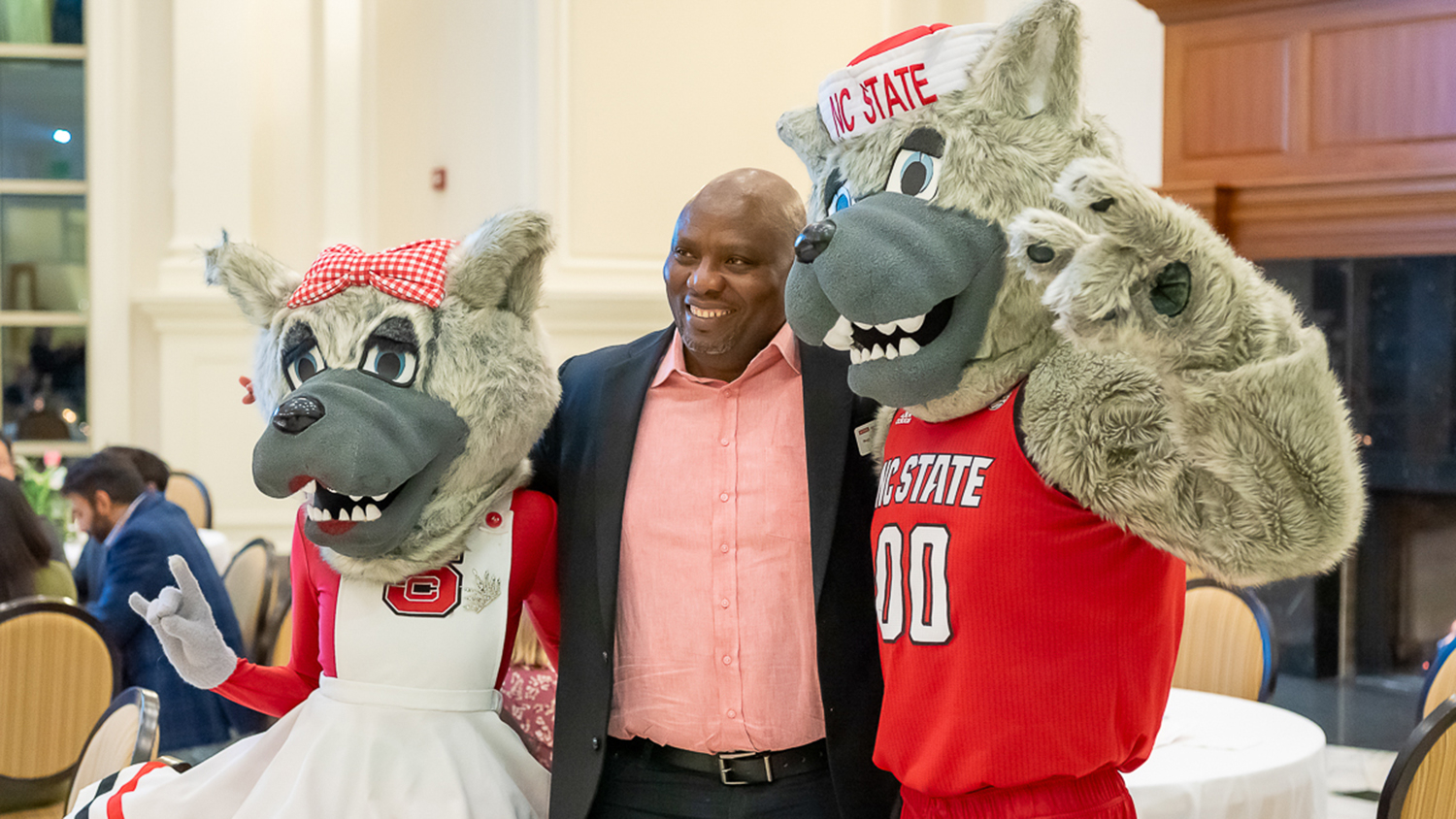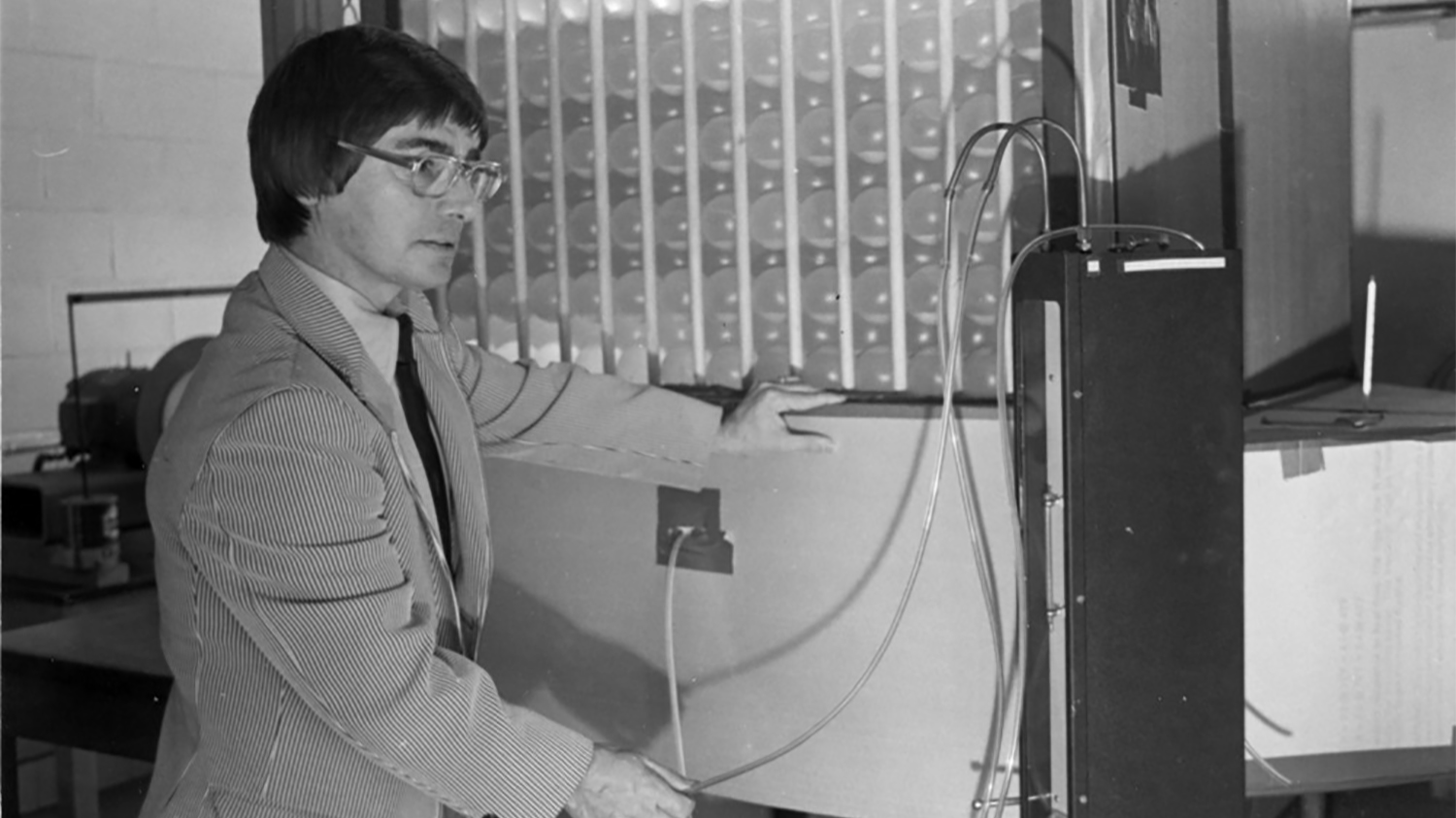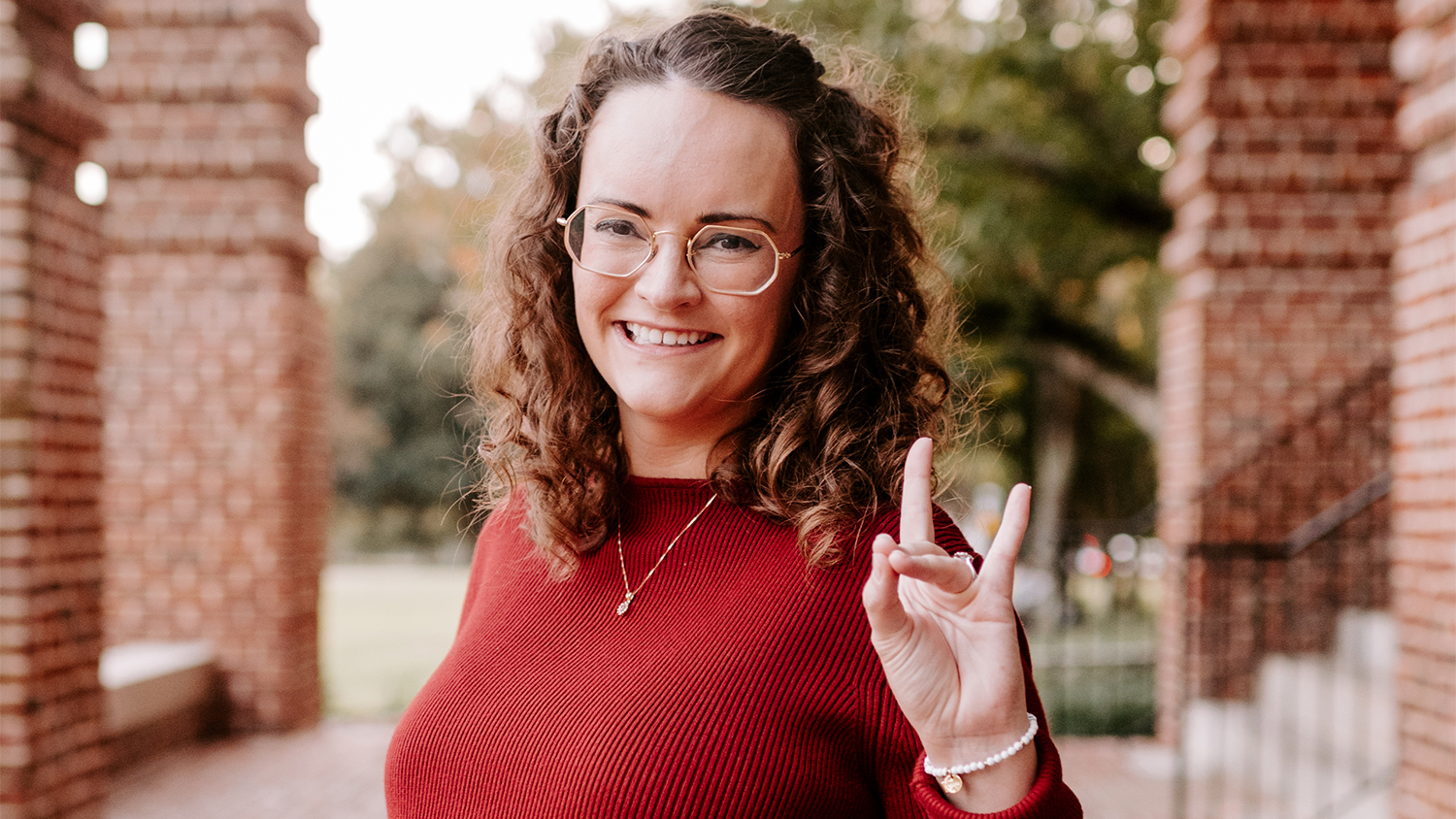Martin-Vega addresses new graduates during global event

Louis Martin-Vega, dean of the College of Engineering at North Carolina State University, offered words of encouragement and a call to action for nuclear engineering graduates during a global commencement program on June 4, 2021.
The Nuclear Energy Agency (NEA) Global Nuclear Science and Engineering Commencement offered 2021 graduates around the globe a chance to participate in an online commencement program. For the second year, NEA conducted an online program for new graduates whose commencement exercises may have been altered or even canceled because of the global COVID-19 pandemic.
Martin-Vega joined leaders from business, government and academia to address the theme: The important role of early career nuclear graduates in fighting climate change.
Martin-Vega shared these remarks:
Thank you Director-General Magwood for your kind introduction.
I am very pleased and honored to be here with you today and want to thank the NEA for the opportunity to be part of this global commencement event.
First of all, my sincere congratulations to each and every one of you graduating students around the world who have taken the time to join us today. Completing an undergraduate or graduate degree in nuclear engineering or nuclear sciences is not easy … this is an accomplishment to be very proud of … even in the most normal of times. And these have definitely not been normal times. You have overcome major disruptions to teaching, research and your ability to work in groups … and most of all disruptions to your personal lives. I applaud the resilience that all of you have demonstrated during these difficult times and trust that this experience, as challenging as it has been, will serve you well as you start your careers in industry, academia or government research.
While it may be difficult at times to envision the pathways that your lives may take, what I can guarantee you is that a degree in engineering, in your case nuclear engineering, provides you with an excellent platform for a large variety of career opportunities. This was certainly the case for me, where my engineering degree became the springboard for not only a career as an engineering educator and researcher, but also a broad set of experiences in the private sector, in government and as a consulting engineer. Little did I ever imagine that these experiences would even take me to Antarctica and the South Pole … an opportunity that presented itself when I was honored to serve as head of the Engineering Directorate of the U.S. National Science Foundation … none of which would had happened without my degree in engineering.
As the COVID-19 epidemic has taught us, our planet is more interconnected than ever, and the challenges that we face know no national borders. In the decades to come, we will need to work to ensure that the next global pandemic won’t be as deadly and disruptive as the one that we are emerging from. We must make sure that our future is one with clean air and water; adequate sanitation; a plentiful food supply; and clean, reliable energy available to all, especially the rapidly growing developing world. Our greatest challenge is to accomplish all of these things in the face of a climate crisis that is forcing us to alter the way that we are used to living in the developed world, especially when it comes to energy generation.
I am sure that most, if not all, of you would agree that there is no one “silver bullet” that will ever resolve our global energy and climate change challenge. Nonetheless, as Bill Gates has expressed in his book on How to Avoid a Climate Disaster, “It is hard to foresee a future where we decarbonize our power grid affordably without using more nuclear power.” Since nuclear plants are also number one when it comes to effectively using materials like cement, steel and gas, he concludes that “all the cheapest paths to zero-carbon involve using a power source that is clean and always available … like nuclear power.” So, you can see that each and every one of you, as nuclear engineers and scientists, are not only well positioned but also have a very special role and responsibility to play in assuring the sustainability of our planet.
At the end of the day, assuring a sustainable, healthy and secure planet for all mankind has to be our ultimate goal … a goal that all of us at NC State are working on every day … including our Department of Nuclear Engineering.
NC State is home to one of our nation’s leading departments of nuclear engineering with a long and storied history as the first university to offer a Ph.D. in nuclear engineering and the first to open a nuclear reactor on campus. The latest one, PULSTAR, which you can see in my background, is one of the most utilized university reactors in the United States and internationally.

Our faculty members and students are working to maximize the lifespan of current reactors and also leading the research and development of the next generation of light-water reactors and solutions for more efficient storage of waste. Our faculty members have established teaming agreements with TerraPower and with X-energy and GE Hitachi Nuclear Energy to help make this next generation of reactors a reality in the near future. Our Nuclear Engineering Department is also a global leader in the fields of nuclear nonproliferation and in plasma science and engineering, which provides our faculty and students many opportunities to make a major impact on the safety and quality of life of people around the world. I am very proud of their work and very proud that our College is the home to such a prominent and internationally recognized nuclear engineering program.
As I mentioned previously, your degree in nuclear engineering, rather than limiting your life options, is a tremendous platform for career opportunities that you might never imagine, certainly at this stage of your lives. Our nuclear engineering alumni are taking leadership roles at the local, national and global level, both in the area of nuclear power generation and in other related fields, showing the depth and breadth of opportunities available in this field.
Three examples of nuclear engineering alumni at NC State that we are very proud of are Raymond Odierno, Linda Butler and Alan Icenhour.
Ray Odierno earned his master’s degree in nuclear engineering at NC State. Shortly after receiving this degree, he was assigned to be the main U.S military liaison in global nuclear nonproliferation meetings and accords. These experiences catalyzed a quick rise in his responsibilities and propelled what became a very distinguished military career, where eventually General Odierno rose to be a four-star general and chief of staff of the U.S. Army.
Dr. Linda Butler earned her bachelor’s degree in nuclear engineering from NC State and a master’s degree in medical physics and then a medical degree. After years in private practice, she is now the chief medical officer at Rex Healthcare, one of the largest and most progressive health and hospital systems in North Carolina, where she led numerous efforts to address the challenges posed by COVID-19 to our state’s population.
Dr. Alan Icenhour received his B.S. degree in nuclear engineering from NC State and then went on to be a commissioned officer in the US Navy. After leaving the Navy, he joined Oak Ridge National Laboratory, while at the same time earning M.S. and Ph.D. degrees in nuclear engineering from the University of Tennessee. Alan has had a long and distinguished career at ORNL, where he is now the deputy director, or chief operating officer.
While these are just three examples of the types of leadership roles taken on by nuclear engineers, be confident that you now have the education and skills to face any problem and take on any task. Go forward with the knowledge that even when there is so much in your future that will be defined, you have a “platform” that will enable you to be the one who does this defining.
Finally, I exhort you to also go forward with “excellence,” “perseverance,” “boldness,” ”optimism,” and “humility.” Let these virtues guide your path forward, as true engineers, to convert ideas into reality, provide solutions to global and societal grand challenges, and contribute in significant ways to the welfare of all mankind. Take care, congratulations again on all that you have achieved, and I look forward to hearing great things about all of you and your accomplishments in the future.
- Categories:


